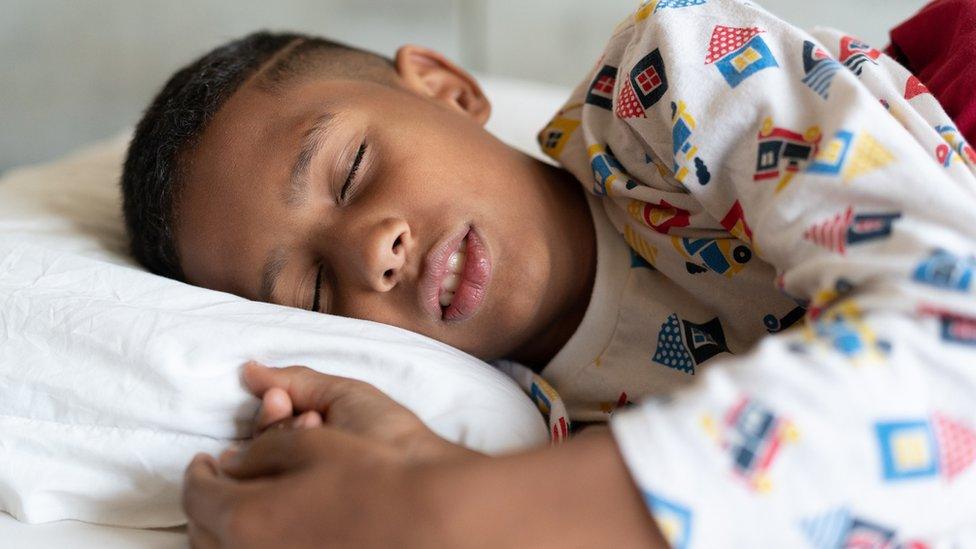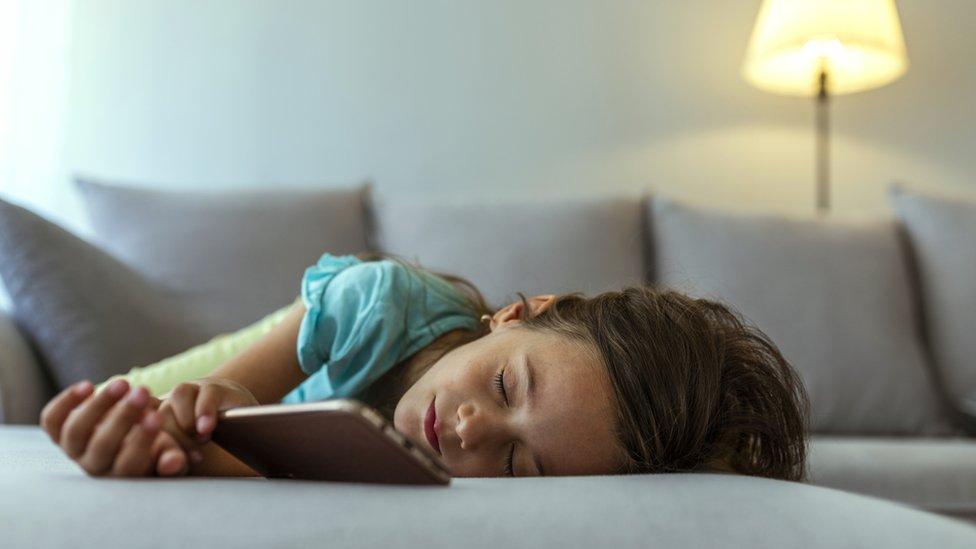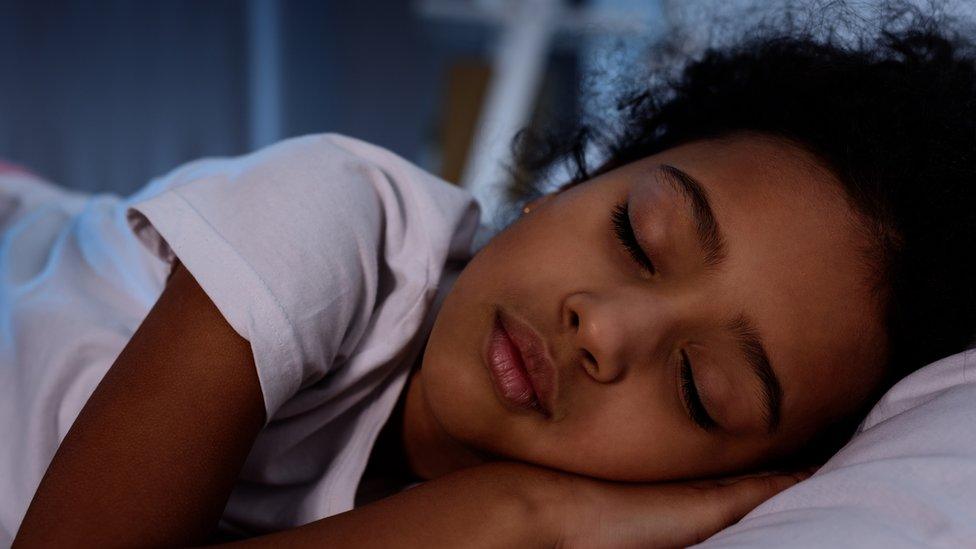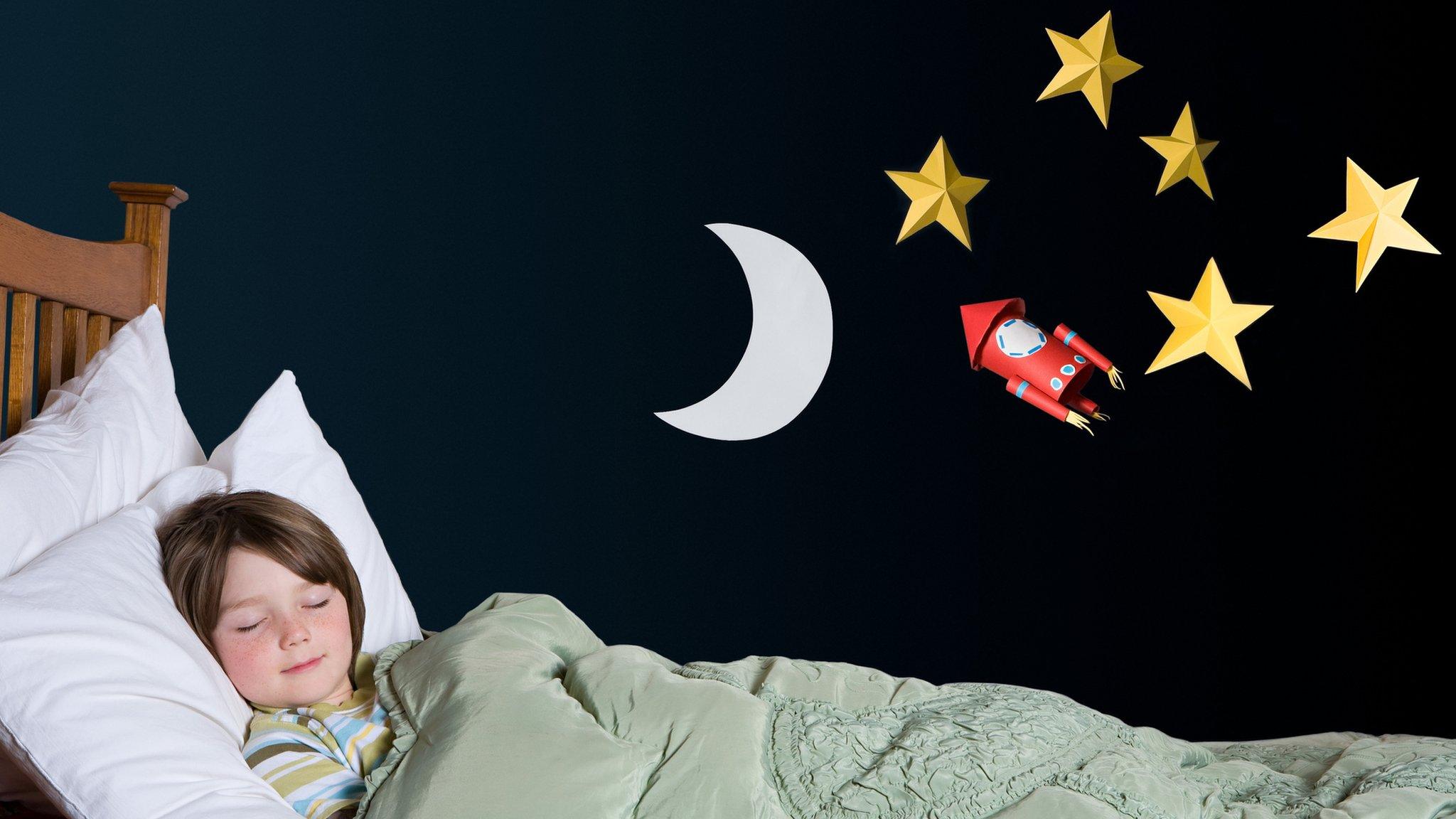Coronavirus: How is it affecting your sleep?
- Published
- comments
WATCH: Sleep expert Stephanie Romiszewski from Sleepyhead Clinic tells us how lockdown is affecting your sleep
Covid-19 is having a huge impact on children's sleep, according to a survey by The Sleep Charity, The Sleep Council and Sleepstation.
They found that as many as 70% of children under 16 are going to bed later and 57% are also waking later - showing a significant change in bedtimes. Experts think this will have a long-term negative impact when schools re-open.
It was also discovered that nearly three quarters (74%) of children are using electronic devices (TVs, tablets, game consoles and phones) a lot more during the coronavirus lockdown.
And the survey revealed that a third of children are sleeping longer than normal, indicating that it will be harder to go back to previous sleep routines once they return to school. Nearly two in 10 are sleeping less which could impact on physical, mental and emotional health and wellbeing.
But why do we dream? Have you been having stranger dreams than normal? And what can we do to stop nightmares from happening? Newsround spoke to sleep physiologist Stephanie Romiszewski to find out. And check out her tips for a better night's sleep below, we included some of your comments in the video too!
WATCH: Sleep expert Sleep expert Stephanie Romiszewski gives her top tips for a good night's sleep
Why do we dream?

We all dream. Sometimes they can be exciting and fun stories and sometimes they can be scary and make us feel bad, these are called nightmares.
All of this is normal and we do it every night whether you remember or not! Experts think it's our brain's way of processing our days and organising our memories like a giant computer storing all the files in the right places.
We tend to dream in a type of sleep called REM sleep or Rapid Eye Movement sleep. Ever watched someone sleeping and it looks like their eyes are flickering and they are dreaming? They probably are in REM sleep.
How is lockdown impacting your sleep?

Have you been having more vivid dreams than normal? Well, it could be because of the impact lockdown is having on our lives.
You are spending more time at home, less time at school and your days are really different.
This change of routine affects everything, and people are having lots of different emotions - good and bad. That's a lot of new information for brains to deal with, and so it can affect dreams. It's normal, considering the circumstances.
All of these factors mean we're more likely to have more REM sleep, which is very sensitive and light. If you interrupt REM sleep you are more likely to remember your dreams, so they seem more vivid compared to normal.
Vicki Dawson, CEO of The Sleep Charity, said: "These are extraordinary times and we fully understand why bedtimes and wake up times have slipped. But we are worried about how children will transition back to a normal routine once schools do reopen, especially if that is as late as September."
She went on to say that "Covid-19 could lead to increased sleep problems in children and young people. Ultimately that has a knock-on effect and may influence their daytime behaviour - including hyperactivity, tearfulness and irritability - and family life."
How to control your nightmares
WATCH: Sleep expert Stephanie Romiszewski explains how a useful technique could help control your nightmares
Sometimes when the nightmares are too scary and they happen too often, it's not very nice to go to sleep.
If this is how you feel write down your nightmare before bed, and then change the ending for something amazing that makes you feel good.
As you go to sleep, start thinking about this new story ending, imagine all the good things, and then start again and imagine it over and over until you fall asleep.
You may find that you can change your nightmares and start enjoying dreaming!
And remember...

Remember that it is ok to have nightmares and dreams. There isn't anything wrong with you and your brain is healthy. All of us have had them, and they are a natural process of your brain doing its job. Sometimes they can even give you cool ideas and answers to problems!
It's ok to have strange sleep at the moment and you don't need to worry about it.
Tips for a better night's sleep
Put all electronic devices away an hour before you go to sleep so that melatonin levels (the sleepy hormone) can increase. Once you have got ready for bed, you can do some things that you enjoy which make you feel calm and happy. If you are worried or not feeling ok, make sure you talk to someone about how you are feeling like your family or friends. It's important not to push the bad feelings down before sleep - in order to have all the fun dreams and lovely sleep we need to process the not so good feelings first. Once you feel really sleepy, now is the time to drift off to sleep!
If you wake in the night. Don't worry, it's normal. If you can't get back to sleep it's ok to distract yourself with a book or something that you like but keeps you calm. When you feel sleepy again, you can go back to bed.
In the morning, it's best to have the same wake time every day with an alarm, and try not to snooze! If you lie in or snooze, it doesn't make you feel great and it can even affect how well you sleep the next night.
Try to get lots of bright light and exercise in the morning - being nice and alert and moving in the day also helps us sleep well at night!
Try to stick to your usual routines of sleeping and napping. If you find yourself going to bed at different times and letting yourself nap at strange times or even napping when you didn't before, these things could all start to make your night time sleep less restful.
- Published15 March 2024

- Published7 February 2019

